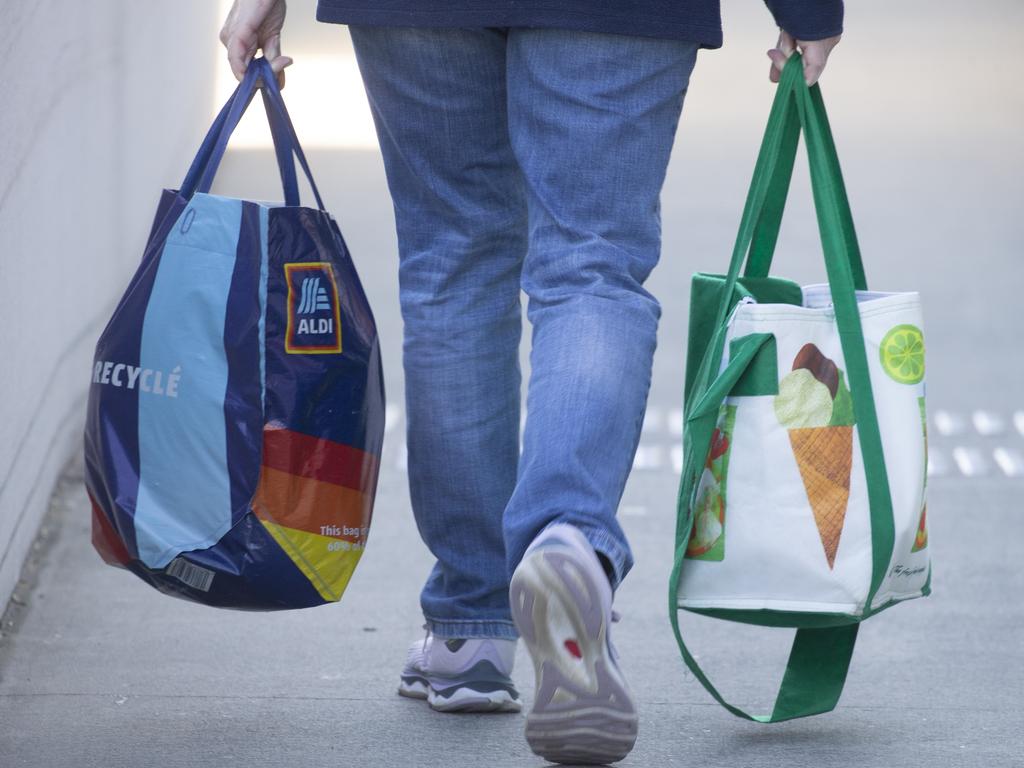‘Dire straits’: Charities issue urgent plea for support ahead of Christmas
Frontline services have issued a grim warning ahead of Christmas as more Australians than ever are in need of urgent support.
Charities have issued a stark warning to Australians ahead of the Christmas period, with demand for non-food aid at an all-time high and no end in sight.
Research from charity Good360 Australia has revealed more than 80 per cent of charities across the country have reported community demand for non-food aid, including hygiene and clothing products, has never been higher.
Nearly 60 per cent of the 500 charities involved in the research also reported an increase in people seeking help for the very first time.
Dallas Neighbourhood House in Melbourne’s north has experienced a “rapid increase” in demand for clothes, sanitary items and hygiene products.
Manager Leanne Cacoyiannis said more Australians were being affected than ever.
“It’s not just people that are not working – it’s actually families now … dad’s working or even they’re just doing it really hard,” Ms Cacoyiannis said.
“Especially the ones that are renting, they’re having to put food on the table, and with the amount rent is around here as well … you’ve got people that are probably trying to pay off a mortgage that’s their first home and their interest rates.
“The way things are these days, it’s dire straits for some people.”
The research found items in highest demand included hygiene products at 76 per cent, clothing at 72 per cent and education supplies at 69 per cent, with the data also finding an 11 per cent increase in the amount of schools and charities seeking support.

NSW homelessness support charity Dignity Inc reported demand for their services had more than doubled, particularly for clothing and essential goods.
Dignity Inc chief executive officer Suzanne Hopman said it’s “hard to see things improving in the short term”.
“I’ve been in social services for a long time and have not seen demand at the levels that we’re seeing at the moment,” Ms Hopman said.
“We’ve seen people who never would have thought they would be in the situation that they’re in reaching out for help in desperation.”
Ms Hopman said many people reaching out had “had to leave everything behind” and were trying to “restart their lives”, with Good360 providing significant support to the charity by way of goods for mothers and babies “who don’t have anything”.
Good360 founder Alison Covington said she found it most concerning that 84 per cent of charities were expecting conditions to worsen over the next 12 months.
“We’ve gone through so many challenging times. We’ve had all the droughts, bushfires, we’ve had a global pandemic, and now the cost-of-living crisis – the charity sector’s not seeing it getting any better and is expecting it to get even tougher in the years coming ahead,” Ms Covington said.
“That’s really quite frightening that they’re not seeing the end to this cycle, and that more cohorts of people are coming to them for support. It’s really quite exhausting as a sector that we just have to keep stepping up, and there’s no end in sight.”

Ms Covington said she was worried moving into the Christmas period, as everyday essentials were becoming unfeasible for more Australians than ever.
“We provide the everyday essentials, but people need joy coming into Christmas,” Ms Covington said.
“A lot of families, a lot of people are finding it tough. It’s expensive to put those everyday essential items into their shopping basket.
“We all know that people find it tough with food, but now it’s crept into all those everyday essentials, whether it’s hygiene products, cleaning … we’re going to have a tough Christmas coming ahead, and then we’re also going to move into school supplies.”
Ms Covington urged retailers to donate spare and excess goods, with Good360 working to redirect the $2.5bn of unsold households goods that go to waste every year to those who need support.
She also called on the government to fund essential items other than food.
“It goes beyond food that people need in these challenging times: it’s the hygiene products, the cleaning products, clothes – children change sizes,” Ms Covington said.
“The governments have to acknowledge that people need more than food and to be able to actually help them in these challenging times with all those other essential non-food items as well.
“So it’s getting everyone to come together, to play a role, to lift everybody up.”
Ms Cacoyiannis is also pushing for more funding for a new site in the heart of Broadmeadows to further support the community, as the current site is “rundown”.
“We really need support to help this cause, to get this site up and running, because it’s a site owned by the department, but it’s rundown — we need $500,000 to fix it,” Ms Cacoyiannis said.
A spokesperson for the Department of Social Services said the government acknowledged “some Australians are doing it tough due to natural disasters and cost of living pressures”, with the government “committed to supporting vulnerable people experiencing financial hardship”.
More Coverage
“The Government contributes over $53 million per year in base funding to over 190 community organisations across Australia to deliver Emergency Relief around the country,” the spokesperson said.
“Commonwealth-funded Emergency Relief providers offer financial crisis and material aid to people experiencing financial hardship. Each year around 430,000 people are provided with Emergency Relief support funded by the Government.”
The spokesperson said the main type of assistance offered by Emergency Relief providers is food, however clothing, vouchers, partial payment of utility bills, budgeting assistance and referrals to other services may also be issued.






